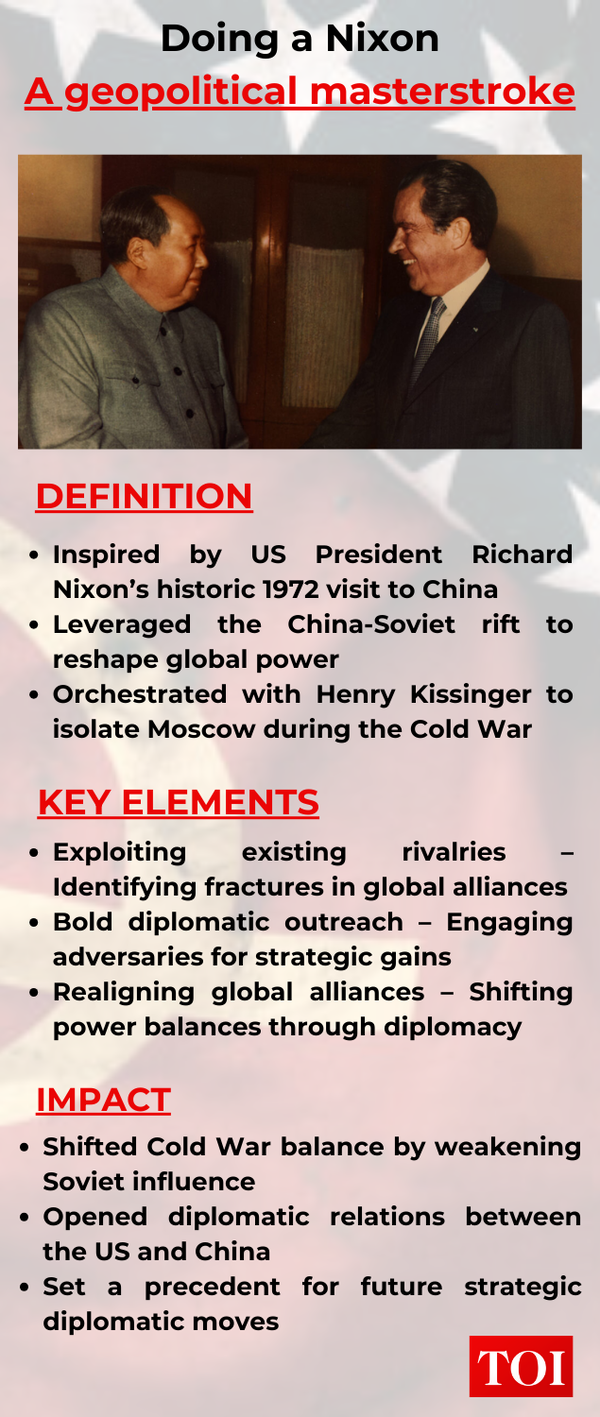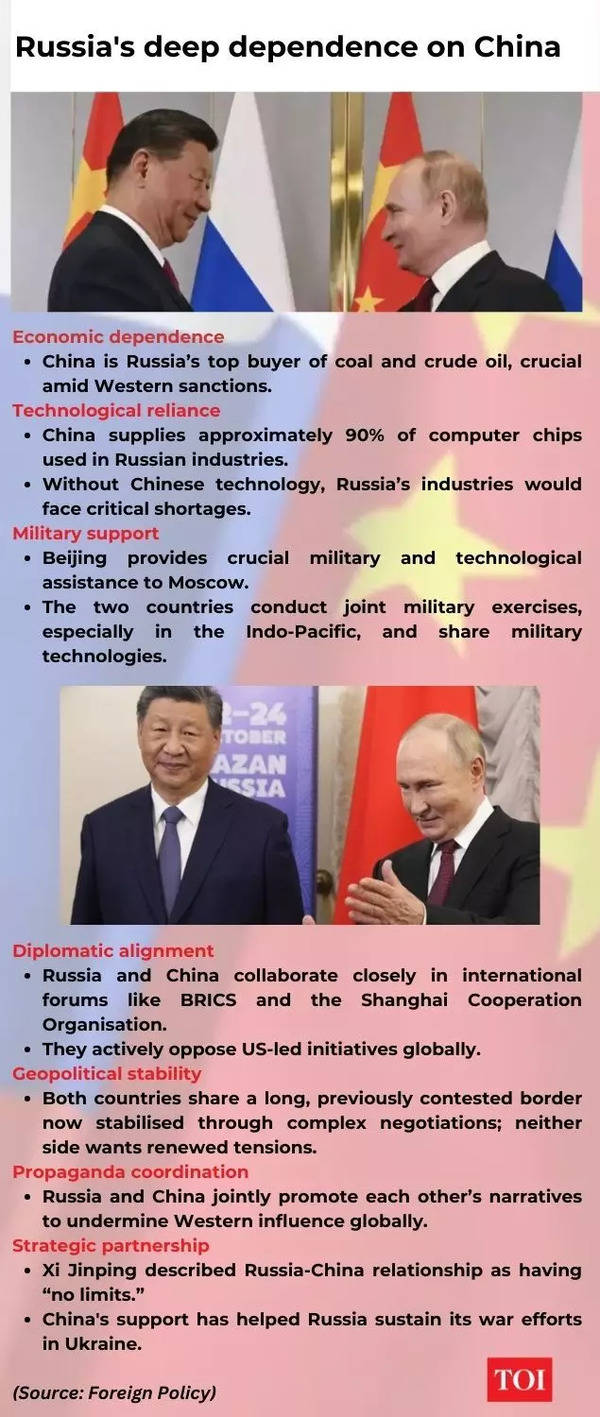In a surprising departure from its long-standing position on the Ukraine war, the United States under President Donald Trump on Monday aligned with Russia at the United Nations, refusing to condemn Moscow’s invasion. This shift, evident in key votes on three UN resolutions, underscored growing tensions between Washington and its European allies, who remain steadfast in their support for Ukraine. The US decision to open direct negotiations with Russia—excluding Ukraine and European nations—has deepened concerns among Western allies and signaled a potential realignment in transatlantic relations.
Driving the news: US-Russia alignment at the UN
- The US voted against a European-backed UN resolution condemning Russia’s invasion.
- Washington abstained from voting on its own resolution after European amendments blamed Russia.
- The US then reintroduced its original resolution at the UN Security Council, which passed with 10 votes in favor and five European abstentions.
- European opposition & UN votes: The European-backed resolution received 93 votes in favor, 18 against, and 65 abstentions.
- The US sided with Russia, Belarus, North Korea, and Sudan in voting against it.
- Trump’s rift with Ukraine: Trump has escalated tensions with Ukrainian President Volodymyr Zelensky, calling him a “dictator.”
- Washington’s disengagement from Ukraine has alarmed European allies who rely on US security support.
- Concerns over future US-Russia deals: Analysts warn that the US may now bypass Europe and Ukraine in future negotiations with Russia.
- The International Crisis Group noted that European diplomats fear more UN resolutions will favor a Trump-Putin deal.
The big picture: Trump’s Russia play
Trump has long been vocal about his belief that the US should prioritize economic deals over ideological conflicts. His recent remarks about Russia’s “massive rare earth deposits” suggest that he sees economic engagement as a way to thaw US-Russia relations. In Riyadh, Trump’s special envoy Keith Kellogg held talks with Russian officials, reportedly discussing a framework for economic cooperation that could include mining rare earth minerals in Russia and Russian-occupied Ukraine.
Putin has welcomed the overture, saying, “Russia is one of the leading countries when it comes to rare metal reserves. By the way, as for new territories, we are also ready to attract foreign partners – there are certain reserves there too.” His reference to “new territories” is widely interpreted as an invitation for Western companies to invest in Russian-controlled areas of Ukraine.
The Americans need rare earth metals. We have a lot of them.
Kremlin spokesman Dmitry Peskov
Additionally, Putin suggested that Russia would be willing to sell two million tons of aluminum to the US—if Washington lifts sanctions restricting Russian metal imports. These remarks highlight the Kremlin’s strategic goal: securing economic relief while maintaining leverage over Ukraine.
Can Trump pull off a ‘Reverse Nixon’?
I really believe that he wants to make a deal. Maybe I’m wrong, but I believe he wants to make a deal.
Trump on Putin
Trump’s rhetoric on Ukraine has undergone a dramatic shift, blaming Ukrainian President Volodymyr Zelenskyy for escalating the war while refusing to commit to Kyiv’s security guarantees. His administration has even floated the idea of Ukraine granting the US access to nearly half of its mineral wealth in exchange for military support.
Trump’s approach to Putin is strikingly transactional. “I do deals,” he asserted in a joint press conference with French President Emmanuel Macron. His confidence in being able to negotiate an end to the war is evident, though his methods have raised concerns in Europe. Macron, wary of a peace settlement that undermines Ukraine’s sovereignty, warned against a deal that amounts to “surrender.”
We see that the United States is taking a much more balanced position, which really helps the efforts aimed at resolving the conflict in Ukraine. We certainly welcome this. We believe that such a balanced position speaks of a real desire to contribute to a settlement.
Kremlin spokesman Dmitry Peskov
It’s not surprising that Trump’s diplomatic maneuvering has drawn comparisons to President Richard Nixon’s 1972 outreach to China. Some in his administration believe they can execute a “Reverse Nixon” strategy—prying Russia away from China by offering economic incentives and a fresh start with Washington. However, analysts remain skeptical that Putin would sever ties with his most reliable geopolitical partner.

China and Russia: A ‘no limits’ partnership
China-Russia relations have strong internal driving force and unique strategic value, and are not aimed at, nor are they influenced by, any third party. The development strategies and foreign policies of China and Russia are long-term.
Chinese President Xi Jinping
While Trump seeks to woo Putin, Chinese President Xi Jinping is working to solidify Beijing’s strategic partnership with Moscow. During a video call with Putin, Xi emphasized that China and Russia are “true friends who have been through thick and thin together.” He dismissed the idea that any third party—implicitly referring to the US—could drive a wedge between Beijing and Moscow.
China’s support for Russia has been unwavering since the start of the Ukraine war. Beijing has provided an economic lifeline through purchases of Russian oil and critical dual-use technology exports. The two nations also share an ideological alignment against Western hegemony, advocating for a new global order that challenges US dominance.

Europe’s fears and strategic calculations
The rapid shift in US policy has unnerved European leaders, particularly given Trump’s openness to excluding them from early-stage Ukraine negotiations. European officials have voiced concerns that Washington’s rush to broker a deal with Moscow could come at the expense of transatlantic security.
Putin himself has acknowledged that Europe will eventually need to be part of the negotiations but stressed that initial trust-building must occur between Russia and the US first. European nations, frustrated by their exclusion from recent US-Russia talks in Saudi Arabia, are wary of a settlement that prioritizes American interests over their collective security.
Is Putin a better poker player Than Trump and Xi?
The Russians will see what carrots Trump may dangle to create distance between Moscow and Beijing, but they are confident that they can keep both pragmatic, beneficial ties with China and engage the United States if Trump is really willing to play ball.
Alexander Gabuev, director of the Carnegie Russia Eurasia Center, to Reuters
Putin’s strategic positioning suggests he is outmaneuvering both Trump and Xi in a geopolitical poker game where the stakes are nothing short of global influence. By engaging with both superpowers while making minimal commitments, he ensures Russia remains central to the shifting world order. His ability to extract concessions from the US while maintaining strong ties with China shows a masterful balancing act that neither Trump nor Xi has fully countered.
Ultimately, Putin’s game is one of endurance and leverage. Trump seeks quick deals and transactional wins, while Xi prioritizes long-term geopolitical dominance. However, it is Putin who is playing the long game, extracting the maximum advantage from both sides while keeping his options open. Whether this strategy will hold in the long run remains to be seen, but for now, the Kremlin’s leader appears to be holding the strongest hand.
(With inputs from agencies)




